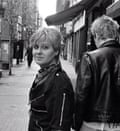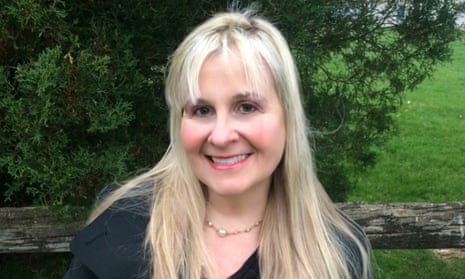Nancy Barile is an English teacher at Revere high school in Boston, US. She is a professor at the graduate school of education at Boston’s Emmanuel College and has been teaching for 20 years.
I became a teacher at 35. It was always my calling, but it took me a little while to get there. My father had wanted me to study law instead of teaching, so for 11 years I worked as a paralegal and was unfulfilled.
I started teacher training at 25. For financial reasons I still needed to work full-time, so I spent nearly 10 years going to night school, completing my bachelor’s degree and then a master’s. When I look back on how I’d work all day, go to school in the evening and do assignments in my lunch break, I don’t know how I did it. But when you really want something you just go for it.
In my first year of teaching one of my students was killed by a gang. It’s not the case any more, but at the time there were big gang problems in this area of greater Boston. I was really scared that someone else would die in retaliation, so along with some other people, I spent the next 72 hours walking the streets, talking to kids and gang members.
I just listened – no one had really done this before. Many of the gang members had come from Cambodia and faced a lot of prejudice. The local community had largely rejected them and, because they’d been small in numbers and poor, they’d formed gangs. They didn’t feel any ownership in where they lived. I wanted them to see that there was a world outside their experiences, that this didn’t have to be their life and that they could achieve great things.
Thankfully, no more violence broke out. Some of the people I spoke to became good friends – one of the gang leaders became a great ally in fact. He wasn’t at the school as he was older, but if I had a kid who wasn’t showing up he’d talk to them because he didn’t want them to have the same life that he did. Like many of the other people I got to know, he later left the gang.
It’s important to provide people with an alternative path. By the end of that year I had up to 40 kids hanging out in my classroom after school. They had nowhere else to go and nothing to do. They needed someone to talk to so I gave them those things. I’d take them on trips over the bridge into Boston so they could see the world beyond the street they lived on and that they had opportunities.

I used to manage punk rock bands in my early 20s – it’s really helped me as a teacher. It grew out of a love of the music. When I was a teenager there weren’t places where you could go to see shows other than huge stadiums, where you had to be 21. So I began renting venues and putting on gigs – managing bands came out of that.
We had this great do-it-yourself work ethic where anything was possible, and that has translated well into being a teacher. The students at my school come from very low-income families and I’m good at being resourceful and getting grants, books, guest speakers and field trips for free. I think it’s helped me connect with young people who are disenfranchised and marginalised because that was me in my teenage years. When people ask “What makes you a good teacher?” I say yes, it was my schooling and professional development, but a big chunk of it was also punk rock.
I work very hard to encourage students to take a stand, regardless of conflicting data, complicating politics or societal pressure. I really want them to demonstrate their independence. Recently, we completed a course in feminist criticism because I want them to understand when the media is manipulative. We analyse music videos and films to see if they’re being sent any negative messages on things like race or gender. I think this generation are receiving some terrible messages about sexual equality. Music videos are horribly misogynistic. My kids yell at me because they say they can’t watch programmes any more as they keep hearing my voice in their head.
At my school we run a fantastic project called Axis of Hope. While at a conference I heard professor Carl Hobert speak about conflict resolution workshops he ran for students. As soon as lunchtime came I cornered him and said he would come to my school. He’s phenomenal. The students solve a real-world crisis, such as the Arab-Israeli conflict. It’s very interactive. They split into groups representing the different sides and when they’ve come up with a solution they write it up and send it to the secretary of state. It gives kids a great global perspective: having an activity where they have to think about an issue from alternative viewpoints opens up their mind.
I believe that poverty is the single biggest issue in public education today. At my school 80% of students live below the poverty line. I’ve taken parents to the social security office, to the tax office to fight bills they thought were wrong. I’ve helped them find medical and legal care, and I’ve even found them jobs. I try to help in any way I can. Unless we can lift people out of poverty, no education reform will ever be successful. The strongest predictor of a standardised test score is still a person’s zip code. I would like to see this country address educational inequity. Teachers do a pretty wonderful job at challenging the problem, but we can’t do it alone.

Comments (…)
Sign in or create your Guardian account to join the discussion